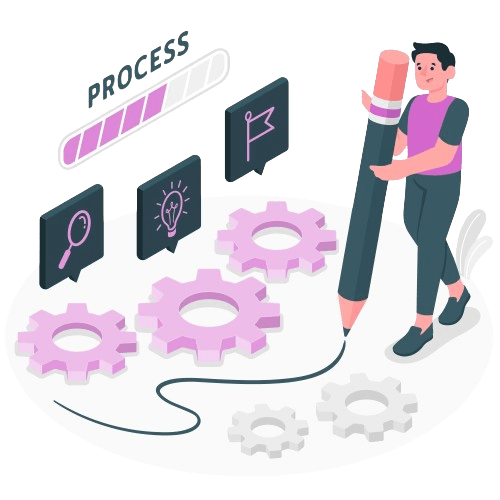What Makes a Good Project Manager? Key Qualities and Skills You Need to Succeed

- Effective project management is critical as 70% of projects fail due to poor practices.
- A good project manager should exhibit strong leadership, communication, problem-solving, and organizational skills.
- Defining project scope, managing timelines, and ensuring effective communication are top priorities for project managers.
- Staying updated with project management trends and building strong relationships can help you stand out as a project manager.
- Utilize project management software, embrace Agile methodologies, and continually engage with stakeholders for successful outcomes.
It is well understood that over 50% of IT projects fail as a direct result of poor project management practices. That is why on every O8 project we have a strong project manager to better facilitate, communicate, and guarantee success.
With an O8 technical PM on the job, problems are dealt with quickly - from identifying when a developer needs help to make sure that we meet the expectations of our client partners throughout the project life-cycle. This assures that the project’s budget is always aligned to the highest priority issues.
Setting The Stage
An effective project manager can be the difference between a project's success and its failure. Studies show that nearly 70% of projects fail due to poor project management practices1. Imagine a world where your projects consistently meet their deadlines, stay within budget, and exceed stakeholder expectations. It sounds like a dream, but it's entirely possible with the right skills and qualities.
In today's fast-paced, ever-changing business environment, project managers face numerous challenges:
- Missed deadlines and overrun budgets.
- Communication breakdowns between team members.
- Lack of stakeholder satisfaction.
Addressing these issues begins with understanding what makes a good project manager. This blog will explore the essential qualities and skills that define an effective project manager, providing actionable strategies to help you improve your project management practices and lead your team to success.
Essential Qualities of a Good Project Manager
Understanding what makes a good project manager is fundamental to project success. A good project manager exhibits a range of qualities that enable them to navigate complex projects, manage diverse teams, and satisfy stakeholders. Here are some of the key qualities:
- Leadership Skills: An effective project manager leads by example, inspires their team, and drives the project towards its goals. Strong leadership fosters a collaborative environment, encouraging team members to contribute their best work.
- Communication Skills: Clear and concise communication is crucial. A good project manager ensures that all team members and stakeholders are on the same page, reducing misunderstandings and enhancing project cohesion.
- Problem-Solving Abilities: Projects often encounter challenges and roadblocks. A good project manager is adept at identifying issues early and finding practical solutions to keep the project on track.
- Organizational Skills: Managing timelines, deliverables, and resources requires exceptional organizational skills. A good project manager prioritizes tasks effectively and ensures that all aspects of the project are well-coordinated.
- Adaptability: In a dynamic environment, being flexible and adaptable is essential. A good project manager can pivot strategies and plans as needed to address changing project requirements and unforeseen challenges.
- Decision-Making Skills: Making informed decisions quickly is a hallmark of a successful project manager. They evaluate available information, consider the potential impact of their choices, and make decisions that benefit the project and stakeholders.
- Technical Expertise: Having a deep understanding of the tools, methodologies, and technologies relevant to the project is invaluable. This expertise enables the project manager to make informed decisions and provide guidance to their team.
Top 5 Priorities of a Project Manager

An effective project manager must prioritize tasks and responsibilities to ensure project success. Here are the top five priorities:
1. Defining Project Scope
Clear project scope definition sets the foundation for everything that follows. It involves outlining project goals, deliverables, tasks, and boundaries. Clear scope statements prevent scope creep and keep the project aligned with its objectives.
2. Managing Timelines and Deadlines
Keeping the project on schedule is crucial. A project manager must create a detailed project timeline, monitor progress, and ensure deadlines are met. This includes adjusting plans as necessary to address any delays or changes.
3. Ensuring Effective Communication
Regular communication with the team and stakeholders is vital. This means not only providing updates but also listening to feedback and addressing concerns. Effective communication fosters transparency and trust.
4. Risk Management
Identifying, assessing, and mitigating risks are essential steps to prevent project derailment. A good project manager develops a risk management plan early on and continuously monitors potential risks, implementing mitigation strategies as needed.
5. Managing Resources and Budget
Efficiently managing resources, including team members, materials, and budget, is critical. This involves allocating resources where they are most needed, avoiding resource conflicts, and ensuring the project stays within the financial plan.
Key Skills for Success
A successful project manager needs a blend of hard and soft skills to effectively lead projects and teams. Here are some key skills:
Hard Skills:
- Project Management Software Proficiency: Familiarity with tools like Microsoft Project, Asana, or Trello can streamline project planning and tracking.
- Technical Expertise: Understanding the technical aspects relevant to the project helps in making informed decisions and providing guidance.
- Risk Management: Identifying, assessing, and mitigating risks can prevent potential project roadblocks.
- Budgeting: Managing the financial aspects of a project ensures resources are used efficiently and the project stays within budget.

Soft Skills:
- Leadership: Inspiring and motivating team members is crucial for maintaining morale and driving project success.
- Communication: Clear, concise communication with team members and stakeholders is essential for coordination and collaboration.
- Problem-Solving: The ability to find effective solutions to unforeseen challenges keeps the project on track.
- Adaptability: Being flexible and responsive to changes helps in navigating dynamic project environments.
- Time Management: Prioritizing tasks and managing time efficiently ensures that deadlines are met without sacrificing quality.
Ready to scale with a strategic growth partner?
Work with us to implement focused campaigns, tight project management, and data-backed decisions that drive measurable growth.
Strategies for Standing Out

Standing out as a project manager involves going beyond the basics and demonstrating exceptional skills and qualities. Here are some strategies to help you distinguish yourself:
- Continuous Learning: Stay updated with the latest project management trends, tools, and methodologies. Pursue certifications like PMP (Project Management Professional) or Agile certifications to enhance your credentials.
- Building Strong Relationships: Develop strong relationships with your team, stakeholders, and clients. Trust and mutual respect can significantly enhance collaboration and project outcomes.
- Embrace Agile Methodologies: Agile project management emphasizes flexibility, collaboration, and customer satisfaction. Mastering Agile principles can make you a more effective and adaptable project manager.
- Focus on Stakeholder Engagement: Consistently engage with stakeholders to understand their expectations and concerns. Regular updates and transparent communication build trust and ensure alignment.
- Leverage Data and Metrics: Use data-driven insights to make informed decisions. Track key performance indicators (KPIs) to measure project progress and identify areas for improvement.
- Effective Delegation: Learn to delegate tasks efficiently. Trusting your team with responsibilities not only empowers them but also allows you to focus on higher-level strategic tasks.
What Will a Project Manager Do for Your Next Project?
Their job starts with assembling a great team with the skills needed to match the best solutions to a particular project brief. An O8 PM makes certain that the team has what they need to perform their best on behalf of the client's goals. But there this more. A Project Manager:
- Resources projects with skills needed through the evolving project lifecycle
- Translates client requests into actionable tasks
- Protects developer focus
- Monitors the scope of work and budget to fulfill (and hopefully exceed) the client's expectations
- Identifies gaps in information that puts projects at risk
Contact Us
A qualified PM is just one part of the O8 team. Our company is comprised of a committed staff who appreciates a high-quality work environment. Our team values the expert-level nature of everything we do, from our infrastructure to our planning and processes to the final solutions that we build together. We are personable people who care about our clients, the quality of our solutions and each other. If you need an IT, web design, or digital marketing project done on time and on budget, contact us now!




